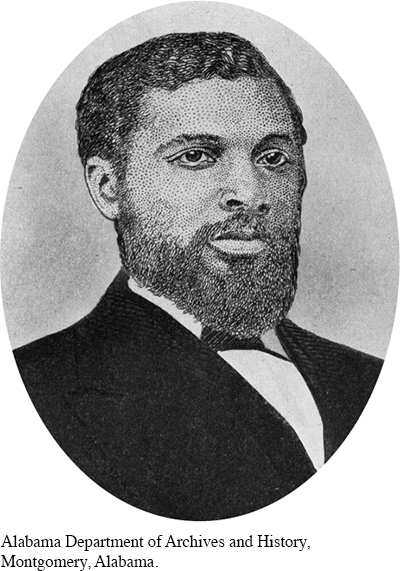The American Promise: Printed Page 439
The American Promise, Value Edition: Printed Page 401
The American Promise: A Concise History: Printed Page 458
Introduction to Chapter 16
The American Promise: Printed Page 439
The American Promise, Value Edition: Printed Page 401
The American Promise: A Concise History: Printed Page 458
Page 43916
Reconstruction
1863–

CONTENT LEARNING OBJECTIVES
After reading and studying this chapter, you should be able to:
Identify the challenges facing reconstruction efforts.
Describe President Johnson’s reconstruction plan and the ways in which it aligned and differed from Lincoln’s.
Recount the significance of the Fourteenth Amendment and why President Johnson advised southern states to reject it. Explain the terms of radical reconstruction and how Johnson’s interventions led some in Congress to seek his impeachment.
Describe the provisions of the Fifteenth Amendment, and explain why some women’s rights advocates were dissatisfied with it.
Describe how congressional reconstruction altered life in the South. Explain why the North abandoned reconstruction, including the role of Grant’s troubled presidency and the election of 1877 in this abandonment.
IN 1856, JOHN RAPIER, A FREE BLACK BARBER IN FLORENCE, ALABAMA, urged his four freeborn sons to flee the increasingly repressive and dangerous South. James T. Rapier chose Canada, where he went to live with his uncle in a largely black community and studied Greek and Latin in a log schoolhouse. In a letter to his father, he vowed, “I will endeavor to do my part in solving the problems [of African Americans] in my native land.”
The Union victory in the Civil War gave James Rapier the opportunity to redeem his pledge. In 1865, after more than eight years of exile, the twenty-
During the elections of 1868, when Rapier and other Alabama blacks vigorously supported the Republican ticket, the recently organized Ku Klux Klan went on a bloody rampage. A mob of 150 outraged whites scoured Rapier’s neighborhood seeking four black politicians they claimed were trying to “Africanize Alabama.” They caught and hanged three, but the “nigger carpetbagger from Canada” escaped. After briefly considering fleeing the state, Rapier decided to stay and fight.
The American Promise: Printed Page 439
The American Promise, Value Edition: Printed Page 401
The American Promise: A Concise History: Printed Page 458
Page 440
In 1872, Rapier won election to the House of Representatives, where he joined six other black congressmen in Washington, D.C. Defeated for reelection in 1874 in a campaign marked by ballot-
Union general Carl Schurz had foreseen many of the troubles Rapier encountered in the postwar South. In 1865, Schurz concluded that the Civil War was “a revolution but half accomplished.” Northern victory had freed the slaves, he observed, but it had not changed former slaveholders’ minds about blacks’ unfitness for freedom. Left to themselves, whites would “introduce some new system of forced labor, not perhaps exactly slavery in its old form but something similar to it.” To defend their freedom, Schurz concluded, blacks would need federal protection, land of their own, and voting rights. Until whites “cut loose from the past, it will be a dangerous experiment to put Southern society upon its own legs.”
As Schurz understood, the end of the war did not mean peace. Indeed, the nation entered one of its most turbulent eras—
CHRONOLOGY
| 1863 |
|
| 1864 |
|
| 1865 |
|
| 1866 |
|
| 1867 |
|
| 1868 |
|
| 1869 |
|
| 1871 |
|
| 1872 |
|
| 1873 |
|
| 1874 |
|
| 1875 |
|
| 1876 |
|
| 1877 |
|